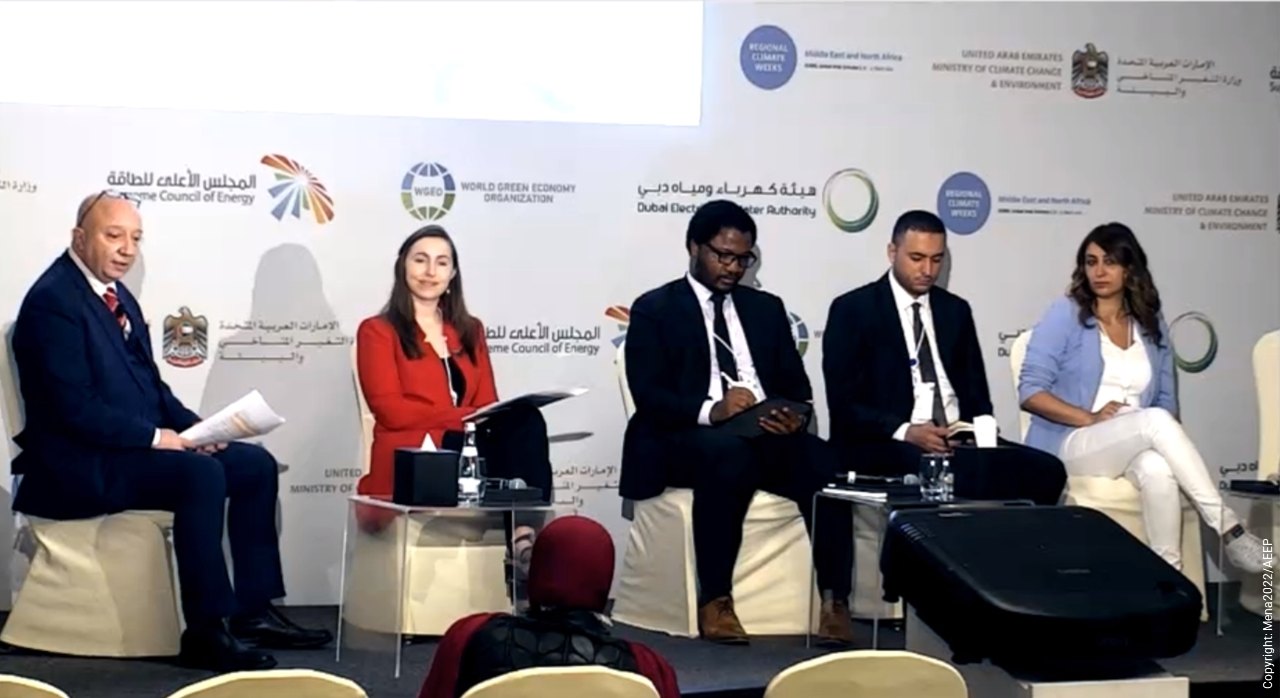MENA Climate Week: Collaboration and Partnerships are Key Elements for a Successful Energy Transition

The first ever Middle East and North Africa (MENA) Climate Week wrapped up on the 31st of March 2022, in Dubai. The 4-day event highlighted ways to accelerate collaboration and integrate climate action towards global recovery and the implementation of the Paris agreement.
The panel discussion “Collaboration and Partnerships to Accelerate a Sustainable and Just Energy Transition“ spotlighted how a just energy transition can provide solutions to climate change but requires increased collaboration and partnerships across the entire economy. Partnerships are needed to accelerate and broaden the scope of the energy transition and to ensure that all relevant stakeholders and sectors are involved.
The panel emphasised increased South-South cooperation for sharing best practices and lessons learned . Yusuf Olatunji, Climate Change Specialist, World Economic Forum, noted that countries and institutions can leverage and learn from the experiences of other Southern counterparts. Johan van den Berg, Head of Secretariat, Africa EU-Energy Partnership (AEEP), added that the MENA region has many renewable energy resources that can be harnessed towards the energy transition. He added that dialogue should not be about how the world can help the MENA region, but rather about how to create mutually beneficial partnerships.
Enhanced public-private dialogue needed
The benefits of collaboration and partnerships are further evident in the financing and the bankability of projects. Olatunji pointed out that no single institution has all the necessary funds, which is why only a joint effort will enable the energy transition. Ahmed Samir Elbermbali, Managing Director, Clean Energy Business Council, emphasised the importance of driving dialogue between the public and private sector to better convey the perspectives of the private sector to governments, and create policies accordingly. Elbermbali, however, also warned governments from restricting the private sector, since this might lead to the loss of additional benefits such as finance, expertise and job creation.
Additionally, international partnerships in the private sector could enable more access to capital and increase investors’ confidence in projects, which, in turn, could increase investment levels. Sawsan Bawaresh, Clean Energy and Climate Specialist at the Royal Scientific Society in Jordan, added that sectoral synergy is extremely important. It’s impossible to talk about an energy transition without considering, for example, the private sector, transport or agriculture. These are the backbones of the economy and therefore the energy transition has to be considered with a broad lens focused on global, multi-sectoral approaches to partnerships.
Finally, the panel discussed the energy transition from an inclusive lens. Participants agreed that when considering an energy transition, it’s crucial to consider the role of women and the youth. Ryme Assaad, Executive Director, RISE 2030, conclude that every discussion about an energy transition is simultaneously a chance to create opportunities for women and young people.





